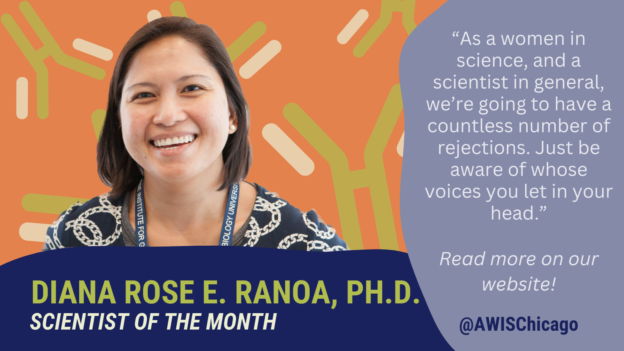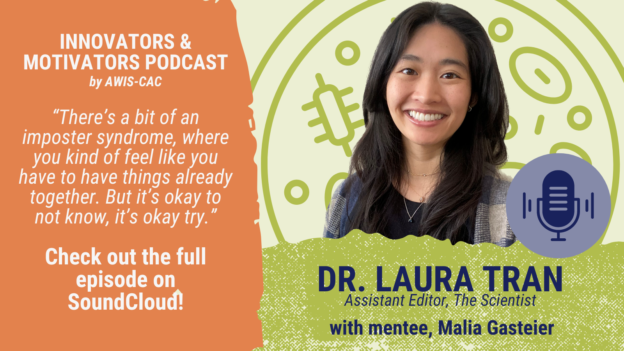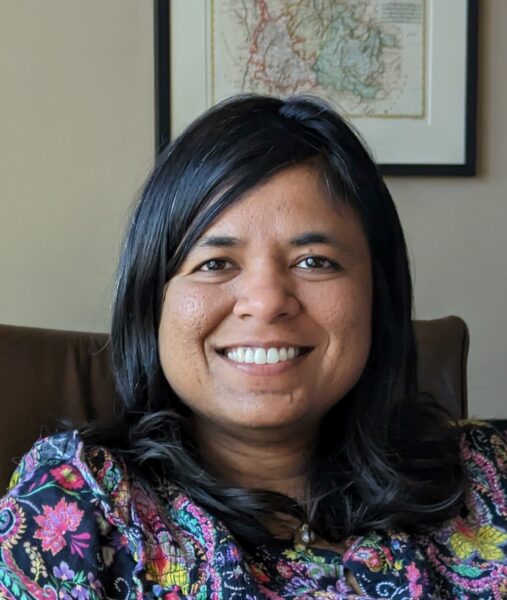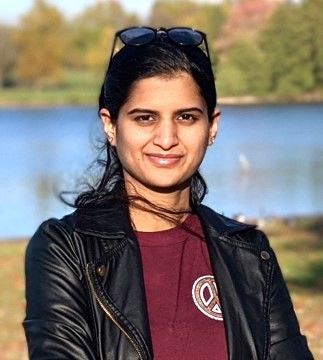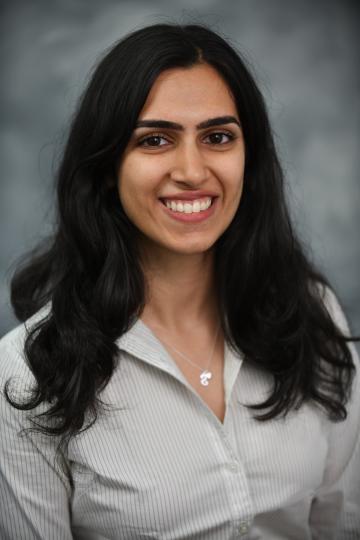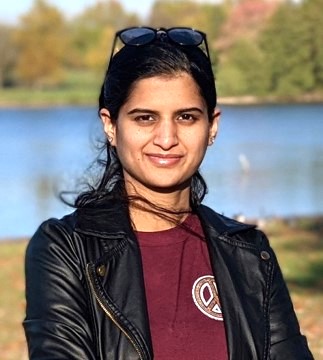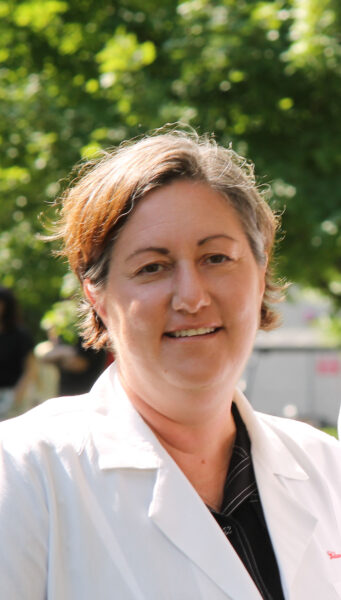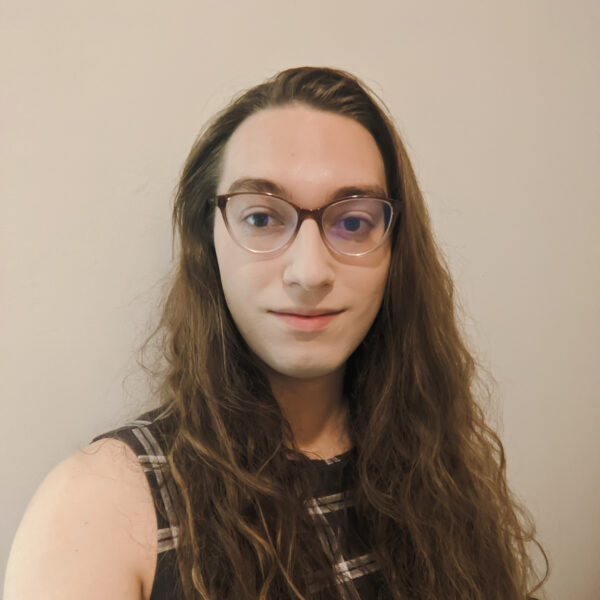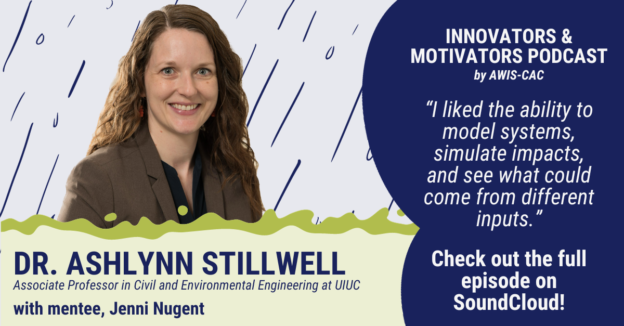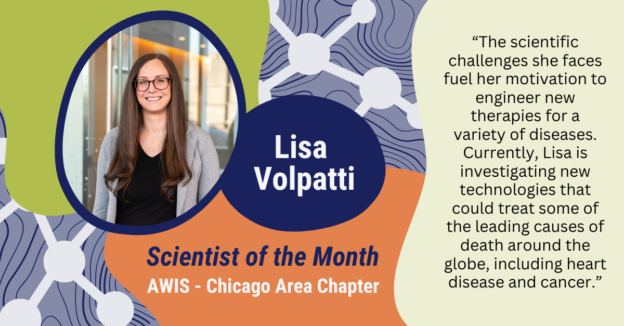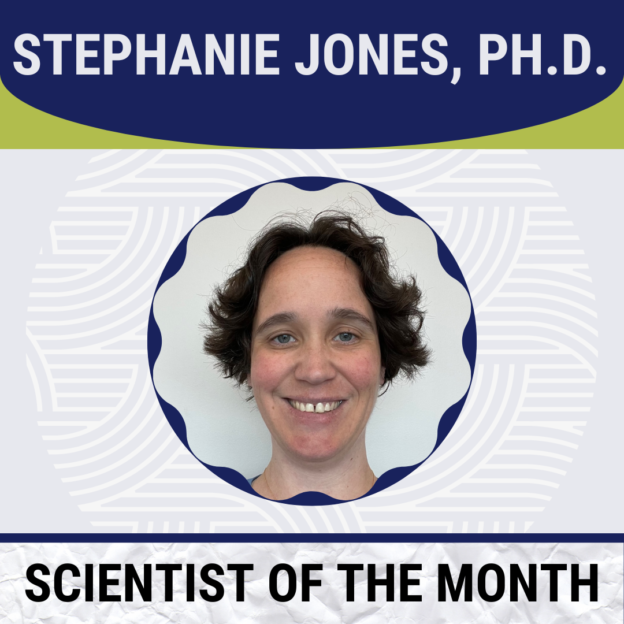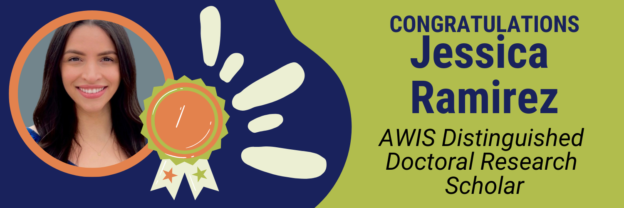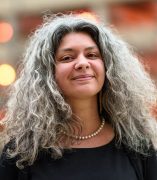by Christina Nowicki, Ph.D.
Talking to Dr. Diana Rose E. Ranoa, her passion for science and positive attitude is abundantly clear. And like a lot of scientists, she’s not afraid of tackling tough problems. Diana is currently a Postdoctoral Research Fellow at the Carl R. Woese Institute for Genomic Biology, working with the Anticancer from Pets to People (ACPP) theme leader Professor Paul J. Hergenrother, where her research focuses on a complex question – how can we harness the human immune system against cancer?
Originally from the Philippines, Diana started her career at the University of Philippines-Diliman, where she received her B.Sc. and M.Sc. in Molecular Biology and Biotechnology. Almost 20 years ago, in 2006, Diana moved to Illinois in pursuit of her Ph.D. in microbiology at the University of Illinois Urbana-Champaign. Here, under the guidance of Dr. Richard I. Tapping, her research focused on toll-like receptors, or TLRs, in immunity and infection. TLRs are critical mediators of inflammatory pathways and essential to the function of the immune system against infection.
However, after her Ph.D., Diana redirected her research towards both a personal and important cause, “A big driving force was my dad passed away due to lung cancer,” she explained, “So, I said that I’m going to dedicate my career towards developing new therapeutics against cancer [and] improving the current set of therapeutics against cancer.”
That’s how Diana ended up the University of Chicago as a postdoctoral scholar with Prof. Ralph Weichselbaum in the Department of Radiation and Cellular Oncology. With this new goal in mind, Diana pursued studies to understand how cancer cells react to ionizing radiation. Further, she wanted to learn more about how the immune system could be harnessed to wake up and fight against cancer, as cancers typically occur because the immune system no longer recognize them as a danger signal.
“But once they do, they’re very powerful at killing their target,” Diana asserted.
In part, this is the reason she returned to the University of Illinois Urbana-Champaign, where she had developed connections to experts in immunology and small molecule development. Joining the lab in 2019, Diana built on the work of previous graduate students towards understanding the anti-tumor and immunostimulatory effects of a small molecule that was in phase one clinical trials at the time.
But a few months later, COVID changed everything.
“We needed something to get back.” Diana stated simply, “And for us to be able to get back we had to develop a rapid saliva test. To make a long story short, we developed the test, the campus was able to safely re-open, and I was able to go back to doing cancer research.” She’s being humble. They were given a month to develop a saliva-based test that is faster, cheaper, and scalable. On top of that, their newly developed test needed to go through FDA emergency use authorization.
“It was a gratifying feeling to be able to see students come back in the fall 2020 semester,” she later admitted in our interview when asked what her greatest accomplishment is. “We know that COVID is a serious matter, even though some people think it’s not serious. But for some families, it is. So having a record of no deaths on campus during that time when there were no vaccines available yet is something that I’m really proud of, and I’m probably going to tell younger generations.”
After this quick detour, Diana returned to cancer research, this time collaborating with Prof. David M. Kranz. Her most recent work tells the story of how chimeric antigen receptor T cells, or CAR-Ts, may be used to treat advanced disseminated stages of ovarian cancer in mice. CAR-Ts are T-cells that have been engineered in the lab to specifically target cancer cells. Currently, all FDA-approved CAR-T therapies are directed toward blood cancers, like leukemia, and not solid tumors, such as ovarian cancer. Ultimately, Diana and her colleagues were able to extend the lives of mice to the equivalent age of a human in their 80’s or 90’s.
“Setting up these models in mice and showing that your treatment actually works against advanced stages of cancer, it’s a gratifying thing,” explained Diana, “It’s something that encourages me every day to get up and go to work, start work early. Because, you know, you’re creating something, you’re doing something towards the improvement of treatment. There’s a lot of room for improvement, but at least we’re moving forward.”
In the future, Diana hopes to continue working on this research by improving the therapeutic index of CAR-T cell therapy. For her, the next steps are obvious, “I work with a chemist, I work with an immunologist. So, combining CAR-Ts and small molecules may be the next step to making CAR-Ts better in terms of seeing their targets or fighting cancer.”
On a personal level, Diana’s next steps might be even more exciting. “At this point, I think I’m ready to transition to a new position,” she said, “At the end of my postdoc at Chicago, I wasn’t sure yet if I want to be a faculty or something like that. But it’s mainly because I’m afraid of going beyond my comfort zone, which I think is common for a lot of women.”
In response to this, I had to end our conversation by asking Diana what advice she would give to women in STEM trying to follow in a similar path. Without pausing, she doled out some sage wisdom. “As a woman in science, and a scientist in general, we’re going to have a countless number of rejections,” advised Diana, “Just be aware of whose voices you let into your head. Because that will affect your attitude towards your work, your experiments, and your career development.”

